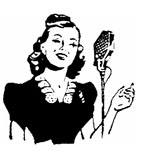
Talk Shows
HARVARD DIARY
I have been making some snide remarks in recent columns about the talk shows that now take up so much time during the morning and afternoon on television, and I want to bury the subject, now, with some further comments, prompted actually by those of a friend of mine, who kept asking me in various ways why I objected to such characters as Oprah and Phil and Geraldo and Montel and Rolanda and Sally-Jessy and Vicki and Maury (I’m sure I’m omitting a dozen or so others) when they, after all, offer thousands of ordinary folks a chance to be seen, to be heard, surely a democratic aspect of our popular culture. Yes, indeed, all day long that is what happens: People of no great wealth, power, fame, achievement — plain people, even humble people — get to sit on a stage, seen and heard by others, also unknown and far from mighty in their background. Why not be glad therefore — the elitism of experts and big shots of various kinds, who have constant access to newspapers, radio, magazines, never mind television, replaced by the appearance of Mr. and Mrs. America, the average ones who live in small towns or working-class suburbs or urban neighborhoods inhabited by people who wear blue or white collars?
Of course, there are, rather often, “experts” on those talk shows — a seemingly endless parade of self-proclaimed “psychologists,” or “therapists” who specialize in this or that aspect of human behavior, the kind being featured on the particular program they are called to grace with their important presence. Not that the hosts of the shows lack their own claim to psychological authority — all the time, in fact, they draw on the phrases of our contemporary support groups. These are hosts who nod knowingly, utter “uh-huh” eagerly, prod their guests to say more (and more, and more), raise their eyebrows and lower their heads or shake them, a beguiling spectacle of the earnest listener who in a flash becomes the earnest (and compassionate or remonstrative) speaker in a conversation that is utterly public: the studio audience, whose members (hope against hope) await their chance in front of those mobile, ever panning cameras; and you and I, we who watch and watch, who don’t know, commonly, whether to laugh or cry or scream, who keep on tuning in, however, we of the mainstream who by the millions mainline the stuff, no matter its slick banality, because it’s hard not to wonder when the apparent limit of one barrier will yield to another — the “seething cauldron” of the unconscious that Freud described as utterly beyond our recognition now turned into a shared narrative of deed and event. Once upon a time we in psychoanalytic psychiatry spent months, years, exploring gradually and tactfully (we hoped) the buried fantasies and impulses of our patients, who had every reason (social and cultural, as well as personabpto keep such matters under wraps, keep them out of sight and mind, both. Now, the most offbeat explorations and discussions that took place in those medical offices, or at professional meetings, and were described in various journal articles or books, all seem quite quaint, surely not worth the attention of today’s emotionally hyped audience for whom every once-unimaginable form of sexuality and violence — every kind of human behavior formerly regarded as wild, utterly and thoroughly loony — has become unsurprising, even old hat. The “polymorphous perversity” of Freud’s unconscious, the lusts and envies and hates, the bizarre passions, the cruelties and betrayals that once belonged way in the back of our minds, are now openly related as if they are the very stuff of ordinary American life.
You May Also Enjoy
Envy is part of our humanity, something that cannot be altogether banished. But, ironically, envy (like other sins) can help us toward grace.
The significance of the biological distinctions between men and women, amplified by centuries of religiously and culturally encouraged differences, are not to be altogether scorned.
I have never heard a song by this “Marilyn Manson” character. But I have read…

